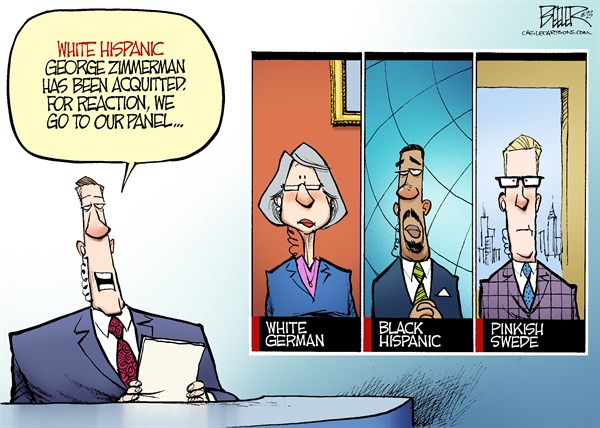I’ll Be There

“I’ll be there, I’ll be there. Just call my name and I’ll be there.”
Sitting, listening to those lyrics of the Jackson 5 song “I’ll Be There,” I realize it is a blues. It should be the official song of Trayvon Martin remembrance. Because it reminds us that despite his absence, he will always be with us, watching over us, defending our right to be a man just like other men, to be a woman just like other women, when that manhood, that womanhood, is trampled on, just as he defended his manhood, his humanity that night in Florida.
Trayvon Martin has become the patron saint of America. His death and the acquittal of his murderer, George Zimmerman, expose a sin buried in the heart of racially self-congratulatory America – it cannot accept the black man as a man despite hundreds of years of black self-policing, liberal handwringing, and conservative males repeating that we “hold these truths to be self-evident, that all men are created equal, with the right to life, liberty, and the pursuit of happiness.”
Trayvon reminds us that those last three – the right to life, liberty, and the pursuit of happiness – are not “self-evident” when it comes to black “men.” A lie Americans tell one another has been revealed. Also revealed is that not a single thing is going to change in the wake of his death, to stop it from happening again, unless we continue to remember Trayvon.
“I’ll be there, I’ll be there. Just call my name and I’ll be there.”
If we keep calling his name, then we will have the courage, as a nation, to change. Trayvon’s gift is a challenge most of us will, unfortunately, ignore.
Trayvon’s other gift is permission to speak about the constant harassment, arrest, and murder of black bodies in public spaces.
A young man shows up in the line to get into a club in downtown Santa Barbara. He is black. College educated. Properly dressed. As the admitter turns to let him in, he stops and says, “Your shirt is too baggy.” “What?” the incredulous young man replies. “Your shirt is too baggy.” The young man tries to compose himself. “My shirt is not baggy. It is clinging to my skin.” An unknown white girl standing behind him in the line chimes in. “His shirt is fine.” “Your shirt is too baggy,” are the words that are repeated with the now unrelenting gaze. The young man makes an instantaneous decision. He steps out of the line and goes on down the street, where he is admitted to another club.
Why? Because he knows how this movie will end. To argue further will escalate an already ridiculous situation, attract law enforcement officers, and lead to his arrest. Because his rage at yet another insult to his citizenship may mean he will find himself fighting with this whiteness-enforcer. And if he does so, he will not be considered a patriot, the Samuel Adams of contemporary America, a man defending the equality of men as stated in the Declaration of Independence, his “self-evident right” to the “pursuit of happiness.” He will be just another Trayvon who stood up for himself and was punished.
As one of my colleagues put it, the one emotion black people are not allowed to have in America is anger.
The transcendence of that legacy is captured in the Motown emotion of “I’ll be there.” I have not died in vain, because I have renewed your consciousness.
“Look over your shoulder!”
Trayvon will be there every time a person is stopped and frisked without any provocation, every time a customer is followed without having any intention of stealing, every time a person is stopped while driving unimpeachably, every time a person is rejected because of his shirt is “baggy,” every time a person is accosted because he traversed the “wrong” space.
Because Trayvon will say That is wrong.



